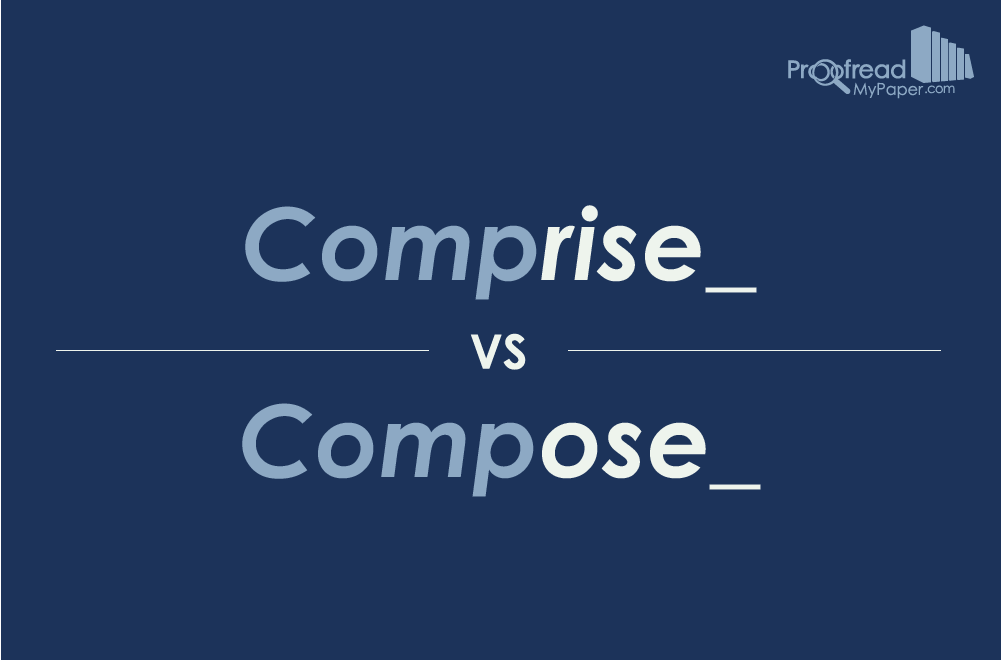At this rate, it won’t be long before even pedants give up on the difference between “comprise” and “compose.” After all, “comprise” is frequently misused, particularly by people writing “comprised of” when they mean “composed of.”
But it’s our job as Guardians of Language (it sounds snazzier than “proofreaders”) to defend against grammatical abuses. So, in this post, we explain how “comprise” and “compose” should be used.
Comprise (To Contain or Include)
The verb “comprise” means “contain” or “consist of,” so it is used when describing a whole that includes multiple parts or components:
The United States comprises fifty states.
Here, “comprises” shows that the United States (as a whole) includes fifty individual states. Typically, when using “comprise,” the whole should come before the parts in the sentence.
Compose (To Make Up or Constitute)
While also a verb, “compose” means “make up” or “constitute.” As such, we could invert the example above to say:
Together, fifty states compose the United States as a republic.
In this sentence, the focus is on how the fifty individual states combine to form the United States as a country.
Find this useful?
Subscribe to our newsletter and get writing tips from our editors straight to your inbox.
Those stars aren’t just there to look pretty. [Photo: Jnn13]We also see why “composed of” is acceptable while “comprised of” isn’t, since “compose” focuses on the parts that constitute the whole. We can therefore rewrite the example sentence again as:
The United States is composed of fifty states.
More generally, “compose” can also mean “create an artistic work” (particularly music or a painting), or even “calm oneself” (where it’s a variation of “composure,” meaning tranquility).
Comprise or Compose?
The problem with “comprised of” is that “comprise” is the opposite of “compose,” not a synonym. In short, they can’t be used interchangeably.
One good way to remember this is the following:
The whole comprises the parts; the parts compose the whole.
Here we see how both terms refer to how something is constituted, but from opposite directions; while “comprise” describes the components as belonging to a whole, “compose” describes the whole as constituted by its parts.



